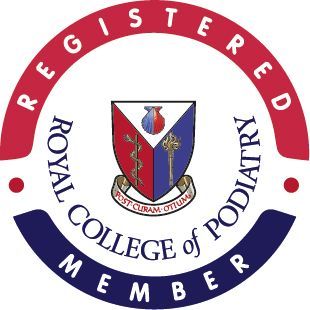Frequently Asked Questions
Where is York Podiatry located?
York Podiatry Ltd has 2 clinics; one in York on Boroughbridge Road and one in Selby on Park Street.
York Podiatry Centre (York Podiatry Ltd), 10 Boroughbridge Road, York. YO26 5RU
Selby Podiatry Centre, 12 Park Street, Selby, YO8 4PW
How do I contact York Podiatry Ltd?
You can contact both sites by email: info@yorkpodiatry.co.uk
Or
By telephone:
York: 01904 789763
Selby: 01757 704747
What is a Podiatrist?
A Podiatrist is a health care professional who qualified to treat foot and lower limb conditions. A Podiatrist must be HCPC (Health and Care Professions Council) registered to use the title ‘Podiatrist’ or ‘Chiropodist’. A Podiatrist will have a degree in Podiatry as a minimum educational standard BSc(Hons). It is an offence to use the title Podiatrist or Chiropodist if you are not on the HCPC register. You can check the register at hcpc-uk.org
What is a Chiropodist?
Chiropodist or Chiropody is what Podiatrists used to be called. The title was changed to Podiatrist or Podiatry during the 1980s. There is no difference in the scope of practice or services offered based on the title, however, some practitioners may choose to offer different ranges of services that others.
What is the difference between Podiatry and Chiropody?
We get asked this question a lot!
Podiatry and Chiropody are interchangeable terms used within our profession and really the only difference is in the spelling.
We began using the terminology Podiatry and Podiatrist back in the 1980s to keep us in line with Europe and USA, but also to keep up to date as the practice of Podiatrists expanded. Whereas, back in the day, our scope of practice was much more limited to cutting problematic nails and the conservative treatment of corns and callus, we now do many advanced procedures, such as nail surgery, gait analysis and laser therapy. But what does this mean for our patients? Well, nothing really. A Podiatrist can and will, still do all the same things that Chiropodists do, it's just we can also offer more to you, our patients, now, than years ago. Chiropodist or Podiatrist are just words, but at York Podiatry your foot health is our priority.
So if you think your feet only need a Chiropodist, then you definitely need a Podiatrist, and we will be delighted to see you at York Podiatry.
Are you qualified?
At York Podiatry Ltd (York and Selby branches) all our Podiatrists are HCPC registered with a minimum BSc(Hons) Podiatry. Our assistant practitioners follow the accredited training pathway provided by The Royal College of Podiatrists details of which can be found at rcpod.org.uk.
Do you treat children?
Podiatrists can treat children for a range of foot conditions ranging from problems with walking such as turning feet inwards, heel pain and ingrowing toenails. If you child has pain in their foot or lower leg, please contact us to find out how to book an assessment.
Is there parking nearby?
Our York clinic has 2 dedicated parking spaces at the front of the clinic and there is off-street parking within comfortable walking distance for those who are not in too much pain.
Our Selby clinic has a large pay and display car park the rear of the building (Abbey Yard Car Park) and it is also quite close to Morrisons car park.
Do you do home visits?
Regretfully we do not offer a home visiting service. We do have disabled access via ramps to our clinics at both sites if patients can use a wheel chair and disabled access facilities within both clinics are also available.
What type of appointment do I need?
All patients who have not previously been registered with us will need to book a New Patient Assessment appointment. This is a first contact appointment, by which we mean it is the first time the patient and Podiatrist will meet, and as such it is the time for information sharing and gathering. The purpose of the appointment is to ensure that you, the patient, are on the most effective treatment plan to meet your foot health needs. We want to make your patient journey with us, the best it can be.
During the appointment, the Podiatrist will need quite a lot of information to make an accurate diagnosis of your foot problem, and it is essential that the appropriate information is gathered and considered before discussing any follow up appointments. You should bring your prescription list with you, if you have one, and be prepared to share information, in confidence, with the Podiatrist during the assessment.
Patients who have previously registered with the practice but not been seen for 12 months or more will be required to book a re-evaluation appointment. This is in line with standards of good clinical practice set out by The Royal College of Podiatry and The Health and Care Professions Council, to ensure the most appropriate treatment is actioned for our patients. Please contact the clinic to ask about this.
Our regular patients will be on an agreed treatment plan, put in place by their regular Podiatrist. If you have any questions about this please contact us by phone or email, or ask at your next appointment.
Will I get treatment during my first appointment?
If it is appropriate to do so, we would usually try to offer treatment during your first appointment with us. The aim of the treatment would be to alleviate pain or provide general care. For some problems that are more complex or require more detailed examination or specialist treatment, this may have to be planned and booked in for a return appointment.
I haven’t been for over 12 months – can I get a routine appointment?
Patients who have previously registered with the practice but not been seen for 12 months or more will be required to book a re-evaluation appointment. This is in line with standards of good clinical practice set out by The Royal College of Podiatry and The Health and Care Professions Council, to ensure the most appropriate treatment is actioned for our patients. Please contact the clinic to ask about this.
Do you treat flat feet?
Podiatrists are trained in Podiatric Biomechanics, which means we are able to examine and treat foot problems related to a fault in the structure or function of the foot. If you think you have flat feet and want an examination to check this, please contact the clinic for information.
What does ‘musculoskeletal’ mean?
Musculoskeletal is a word often used to describe our mechanical function; it refers to our skeleton and our muscles. This system of bones, joints and muscles enables us to move around, walk, run and be active. When we get pain in our joints, muscles or both when we move, it is referred to as musculoskeletal pain.
What is a biomechanical assessment?
A biomechanical assessment is used to look at the structure and function of the foot. It will usually involve an examination of the ranges of motion in the hip joints, knees, ankle and foot, as well as looking at how you walk. At York Podiatry Ltd we also use a Gait and Motion Technology Pressure Mat to assess the pressures under your foot when you walk. Following the examination, you may be advised to wear insoles or orthotics to help your foot to function more efficiently, reduce pain and to support your foot. At York Podiatry we offer a range of devices including PHITS orthotics, which are one of the best evidence based foot orthotics available in the UK.
Is an insole and an orthotic the same thing?
Technically no, but often the terms are used interchangeably. An insole is usually a full length shoe liner, but in Podiatric practice we sometimes add things to an insole to relieve pain or improve foot function. An orthotic is a prescribed medical device that has a therapeutic purpose for the wearer.
How often should I check my insoles or orthotics still work?
You should have your insoles or orthotics checked if there is any change in how your feet feel, your pain comes back or your foot shape or size changes. You should also have them checked if there is any wear or damage to the device. If everything is ok, similar to eye care or dental care, a routine check-up should be carried out every 12 to 24 months. Your Podiatrist will advise you about this depending on your condition.
Do orthotics last a long time?
Simple chair-side devices may only have a life-span of 6 to 12 months, but devices such as PHITS will have a life span of several years. Your Podiatrist will discuss this with you during your appointment.
Can I just get my nails cut – why do I need all the other stuff?
Following your New Patient Assessment, if you only require routine nail cutting, your Podiatrist can book this for you at an agreed return interval. If you are new to York Podiatry and have not been previously registered with us, you will need to attend for a New Patient Assessment; please see the section dealing with this.
What is an ingrowing toenail?
A true ingrowing toenail is when the nail has pierced the skin and a wound and/or infection has developed. If you have a painful toenail and want to know more about what might be causing this, please contact the clinic and speak to our reception team.
Do you treat corns?
Yes, we do. Corns can be removed using a sharp, sterile blade during your treatment appointment. The Podiatrist will also discuss ways in which they can be prevented as part of your treatment advice.
What is callus?
Callus is simply thickened skin. The skin will start to thicken when it is under stress, so if you do a lot of walking or sport, you may get thickened skin on your feet. Certain shoes might also cause callus, as well as faults with the way your foot functions. If you have callus on your feet and want to know why, please contact our reception team.
What can you do to help my fungal nails?
Fungal infection in toenails is not difficult to treat but it can take a very long time. There are a number of topical options, but they do not work very well on thick nails, so you may need some remedial work carried out on the toenail to enable treatment to more effective. It is very common to find that fungal skin infection is present alongside the fungal nail infection, and you should treat both for the best long-term result. If you are concerned about fungal infection, please contact our reception team for more information.
Can you cure fungal infections?
There are a number of antifungal treatments on the market, all of which are able to cure fungal nail infection if used correctly. It is advisable to see a Podiatrist to confirm the diagnosis and advise on the most appropriate treatment for your problem. Our reception team at York Podiatry Ltd will be happy to help you further if you would like to give us a call.
What is a verruca?
A verruca, or wart, is a viral skin infection that causes a small, benign growth to develop through our normal skin. Verrucae can become painful if the ‘bump’ becomes large enough. Verrucae will generally resolve without treatment once the immune system has reacted to them. They are, however, very good at staying undetected, so sometimes you will need help to get rid of them. There are a number of treatment options and you should get advice from an HCPC registered Podiatrist for the best results. Please contact our reception team for more information.
Can you cure my verruca?
The only ‘cure’ for a verruca is our own immune system; there is no drug or chemical on the market currently that can ‘cure’ a verruca or wart. There are treatment options that help our immune system to ‘find’ the verruca, by causing localised tissue damage. You should get advice from an HCPC registered Podiatrist about treatment, and our staff here at York Podiatry Ltd are always happy to help you. Please contact our reception team for more information.
Do you treat a verruca?
We offer a number of treatment options for verrucae, if appropriate at York Podiatry Ltd, including ‘Verrutop’ and ‘Faulkner’s needling’. Please contact our reception team for more information and details of how to book an appointment.



